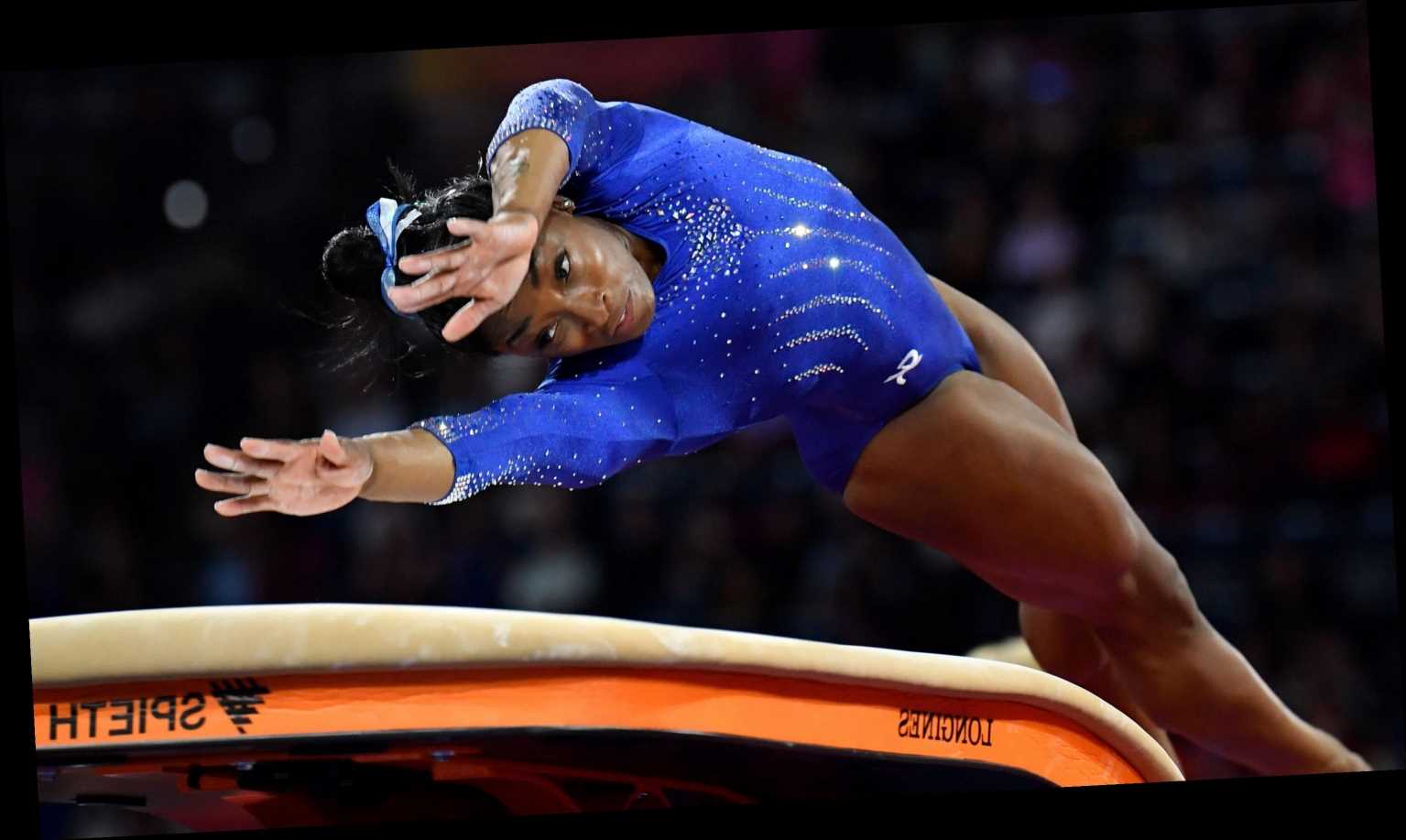STUTTGART, Germany — Simone Biles is the last person international gymnastics officials should be using to try and make a point.
In an effort to deter other gymnasts from trying skills they are not physically capable of doing, the International Gymnastics Federation watered down the value of a new element Biles plans to do at the world championships. That’s right. Penalize the reigning world and Olympic champion, who is almost cautious when it comes to adding difficulty, for the potential recklessness of others.
“Am I in a league of my own? Yes. But that doesn’t mean you can’t credit me for what I’m doing,” Biles told NBC after learning of the decision this week by the women’s technical committee.
Simone Biles performs on the vault during a training session in preparation for the world championships in Germany. (Photo: Thomas Kienzle, AFP/Getty Images)
“They keep asking us to do more difficulty and to give more artistry, give more harder skills,” she added. “So we do, and then they don’t credit it, and I don’t think that’s fair.”
Every element in gymnastics is assigned a letter, which corresponds to a numerical value. An “A” skill is worth a tenth of a point, and every letter in the alphabet that follows is an additional tenth. So a “D” skill is four-tenths of a point while the rare “J” skill is worth a full point.
Biles is doing two new skills at worlds: a triple-twisting, double somersault on floor exercise and a double-twisting, double somersault dismount off balance beam. The triple-double was valued as a J skill, while the double-double was only deemed to be an H.
NEVER GETS OLD: 44-year-old gymnast has to wait to see if she qualified for Olympics
After widespread criticism of its decision, the women’s technical committee (WTC) released a statement Friday explaining its reasoning:
“In assigning values to the new elements, the WTC takes into consideration many different aspects; the risk, the safety of the gymnasts and the technical direction of the discipline,” it said. “There is added risk in landing of double saltos for beam dismounts (with/without twists), including a potential landing on the neck.
“Reinforcing, there are many examples … where decisions have been made to protect the gymnasts and preserve the direction of the discipline.”
Translation: Some gymnasts are trying to pad their scores by chucking skills they have no business doing, and we need to protect them from themselves.
hahahaHAHAHAHAHhahaHahaAhahAhahahaAhahahHAHAahaaaaaaaHa bullshit https://t.co/NAnzBlfh8c
There’s no shortage of hypocrisy in that rationale. If the federation is so concerned with athlete safety, why allow I and J skills in the first place? If Biles’ double-double is going to encourage gymnasts to take risks they shouldn’t, wouldn’t her triple-double do the same?
And, while we’re at it, why not allow gymnasts to do a warm-up on the floor before event finals?
Most bothersome, though, is that the federation has ignored the means it has to keep irresponsible impulses in check.
In addition to the difficulty score – the sum value of all the elements in a routine – there is an execution score. If a gymnast insists on trying a skill he or she has no business doing – some of you vaulters, you know who you are – hammer them on the E score.
Give them a three or a four – a normal E score for an elite gymnast is in the 8s or 9s – and it will nullify whatever advantage there was in the added difficulty.
But no. The federation would rather shortchange Biles of the true value of her accomplishment.
“This is an incredibly difficult dismount and you make it look 'too easy,' ” Cecile Landi, who coaches Biles along with her husband, Laurent, said on Twitter. “Keep doing YOU.”
The great irony in all of this is that Biles is decidedly prudent when it comes to increasing her difficulty.
The new skills she’s doing at worlds are ones she “played around with” long before she considered putting them in a routine. Even once she warmed to the idea, it took months, sometimes years, for her to decide the skill was ready to be done in competition.
“He has all these crazy ideas,” Biles said of Laurent Landi. “Then he has to kind of push me toward it until I’m ready to do it myself. And then I’m like, `OK, it’s not that bad.’ ”
There are plenty of times the federation would do well to hold Biles up as an example. This is not one of them.
Follow USA TODAY Sports columnist Nancy Armour on Twitter @nrarmour.
Source: Read Full Article
